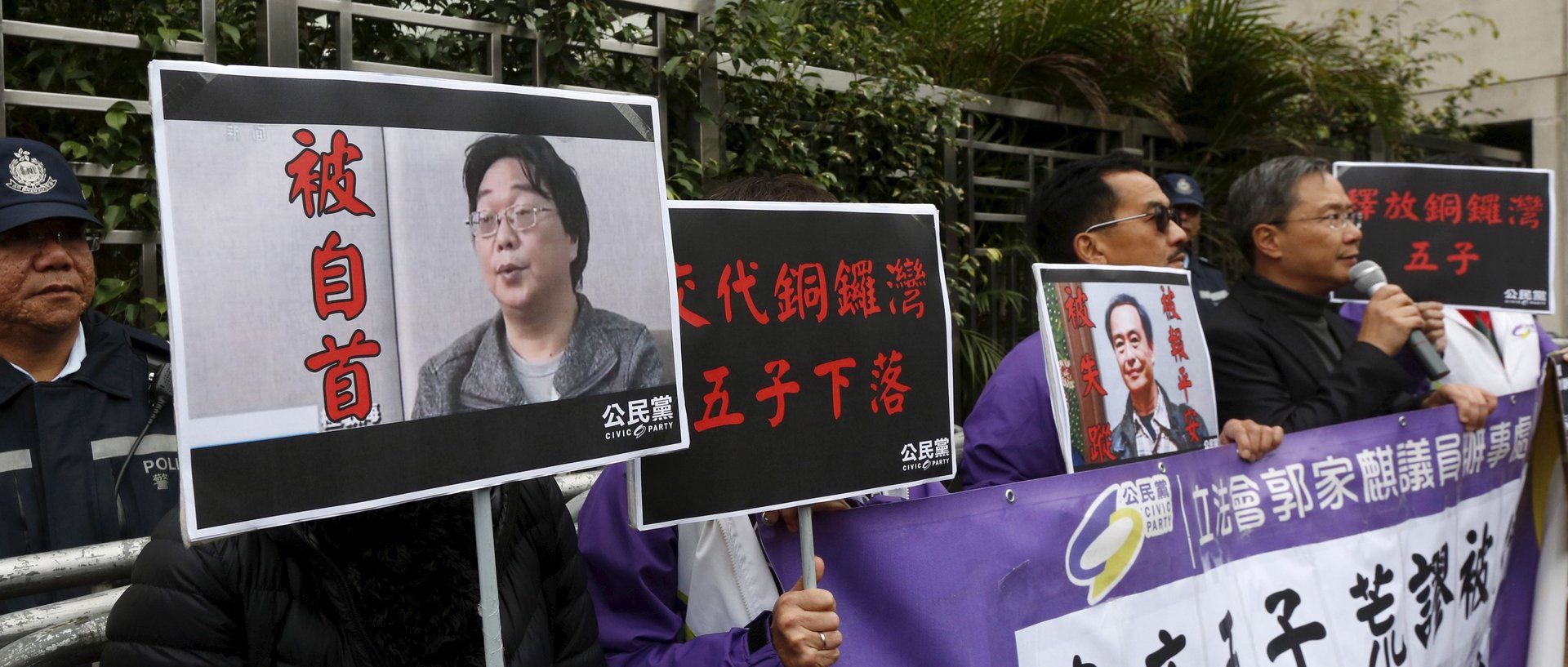Two years later, the last of the vanished Hong Kong booksellers has been “freed” in China
Gui Minhai, one of the five Hong Kong booksellers who mysterious vanished (paywall) and later reappeared in detention in China, has been released by Chinese authorities two years after his disappearance.


Gui Minhai, one of the five Hong Kong booksellers who mysterious vanished (paywall) and later reappeared in detention in China, has been released by Chinese authorities two years after his disappearance.
Gui’s daughter Angela Gui said in a statement today (Oct. 24) that the Swedish embassy in Beijing informed her about two weeks ago that her father, a Swedish citizen, would be released Oct. 17, just ahead of the start of a pivotal Communist Party leadership congress in Beijing. Angela Gui, however, said that she still doesn’t know where her father is, and that Swedish diplomatic staff who went to visit Gui Minhai on that day were unable to see him as authorities said he had already been “released.”
Gui, 52, was the owner of Hong Kong publisher Mighty Current, and went missing in October 2015 from Thailand. He was reportedly preparing to publish a book about the love life of Chinese president Xi Jinping. Four of his colleagues also disappeared from Hong Kong that year. In January 2016, Gui appeared on Chinese state television and made a tearful confession, saying that he had killed a 20-year-old college student while drunk driving in Ningbo, a city in southeastern Zhejiang province, in December 2003.
In the confession, Gui also said, “I have to shoulder my own liability, and I’m willing to be punished… Even though I am a Swedish national, I truly feel that I am still Chinese and my roots are still in China. So I hope that the Swedish side would respect my personal choice, rights and privacy and let me solve my own problems.”
Since Gui’s disappearance, his daughter has been campaigning for his release, including testifying before a US congressional hearing. She is studying for a PhD at Cambridge University. She told online news site Hong Kong Free Press that the Swedish ambassador in Beijing had been allowed to visit her father in September, the first news that she had heard of Gui in over a year. Gui was the last remaining of the five booksellers still in detention.
Margot Wallström, Sweden’s minister for foreign affairs, tweeted that the government is still “seeking further clarification” on Gui’s whereabouts.
William Nee, a China researcher at Amnesty International, suggested that Gui’s “release” is actually another “non-release” by Beijing. The most recent and stark example of such a “non-release” was Nobel laureate Liu Xiaobo, who, after being detained for nine years, was suffering from liver cancer. He was initially reported to have been freed on medical grounds—only to die at a hospital weeks later of liver cancer. The whereabouts of his wife, Liu Xia, remain unknown.
Angela Gui said that she believes her father has been “disappeared again.”
Only one of the five booksellers, Lam Wing-kee, has been active and vocal since his release. Lam, who returned to Hong Kong from mainland China in the summer of 2016, said he was abducted and held for months without access to a lawyer. He continues to speak out against Beijing and take part in public activities such as protests, but says that he’s already a “half-dead” man because of constant harassment and surveillance.